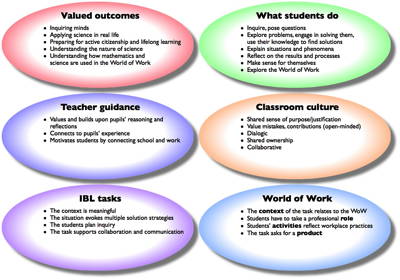 | Mascil Mathematics and Science in Life. classroom resources and a toolkit for teacher training to support inquiry-based learning in world-of-work contexts |

|
European project: Mathematics and Science for Life. classroom resources and a toolkit for teacher training to support inquiry-based learning in world-of-work contexts
This project aims to promote a widespread use of inquiry-based science teaching (IBST) in primary and secondary schools. Our major innovation is to connect IBST in school with the world of work making science more meaningful for young European students and motivating their interest in careers in S & T. To this end, we will run training courses in which pre- and in-service teachers will learn about IBST supported by teachers from vocational education, representatives from industry and informal learning. They will develop inquiry tasks in vocational contexts, leading to a large European task repository. Teachers will experience IBST themselves and through iterative cycles of implementation followed by reflection integrate this into their practice. To ensure widespread participation we will use a pyramid model in which we will work with a small number of teachers first each of which will then work with further teachers. Additionally we will develop an innovative interactive e-learning platform. To profit from the international perspective offered by the project teachers will be connected with existing European networks and our own thematic network on IBST through (virtual) meetings, a forum and the task repository. We will adopt a systemic approach to dissemination working with teachers and additionally parents, students, school authorities and policy makers. National and European advisory panels will bring together stakeholders to advise partners throughout the project; dialogue with policy makers will be facilitated by workshops and policy papers. To ensure effectiveness our work will be informed by a detailed analysis of the educational systems in partner nations. We plan to reach more than 65.000 teachers directly and 800.000 teachers indirectly (via stakeholders, media). References
|